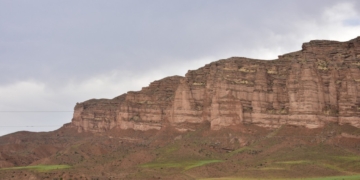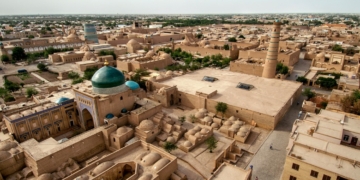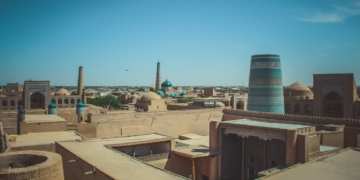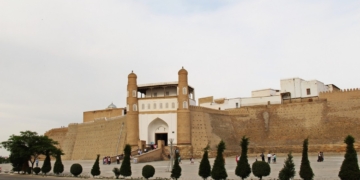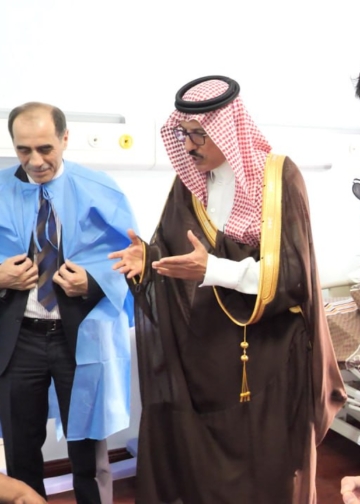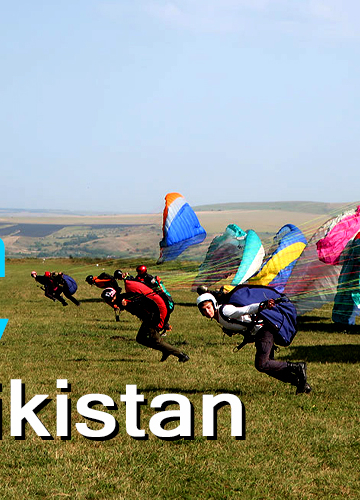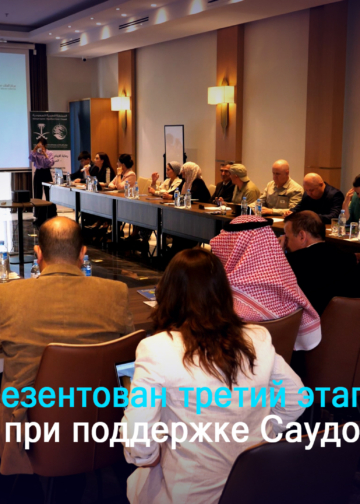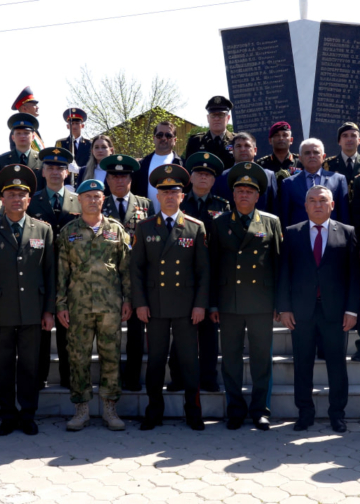id: 96403
date: 2/13/2007 11:45
refid: 07DUSHANBE239
origin: Embassy Dushanbe
classification: UNCLASSIFIED//FOR OFFICIAL USE ONLY
destination: 06DUSHANBE2247|07DUSHANBE224
header:
VZCZCXRO5950
RR RUEHLN RUEHVK RUEHYG
DE RUEHDBU #0239/01 0441145
ZNR UUUUU ZZH
R 131145Z FEB 07
FM AMEMBASSY DUSHANBE
TO RUEHC/SECSTATE WASHDC 9623
INFO RUEHAK/AMEMBASSY ANKARA 1952
RUEHBJ/AMEMBASSY BEIJING 1928
RUEHRL/AMEMBASSY BERLIN 1857
RUEHBS/USEU BRUSSELS 1179
RUEAIIA/CIA WASHDC
RUCNCIS/CIS COLLECTIVE
RHEFDIA/DIA WASHINGTON DC
RUEHIL/AMEMBASSY ISLAMABAD 2023
RUEHBUL/AMEMBASSY KABUL 1981
RUEHML/AMEMBASSY MANILA 0142
RUEHNE/AMEMBASSY NEW DELHI 2000
RHEHAAA/NSC WASHINGTON DC
RUEKJCS/SECDEF WASHINGTON DC
RUEHKO/AMEMBASSY TOKYO 1617
RUEHVEN/USMISSION USOSCE 1911
RUCPDOC/USDOC WASHDC 0139
RUEHDBU/AMEMBASSY DUSHANBE 1228
—————— header ends —————-
UNCLAS SECTION 01 OF 02 DUSHANBE 000239
SIPDIS
SENSITIVE
SIPDIS
E.O. 12958: N/A
TAGS: EAGR, ECON, EAID, PGOV, PHUM, TI
SUBJECT: DONORS TRY TO SPELL RELIEF IN TAJIKISTAN’S COTTON SECTOR
REF: A) DUSHANBE 224 B) 06
DUSHANBE 2247
DUSHANBE 00000239 001.2 OF 002
1. (SBU) Summary:
World Bank-contracted agricultural
economist Garry Christensen outlined a new World Bank approach
to resolving Tajikistan’s $300 million cotton debt crisis — an
approach which could anger many farmers, but could garner the
support of the Tajik government and investors. Infighting
between the Asian Development Bank and the World Bank continues
to hinder progress on the cotton reform «Roadmap,» but
agreement
between the two development banks on debt resolution signals a
giant leap forward. The good news
for donors is that the
development banks are not asking the U.S. or other donors for
additional assistance to fund the process. End Summary.
«One-size-fits-all» approach
—————————————-
2. (SBU) Christensen told EconOff in a private meeting
February 9 that the World Bank and Asian Development Bank have
jointly decided to dispatch with the farm-by-farm approach to
the cotton debt employed for the last year, and proceed with a
«flat-rate» debt relief mechanism, assigning a fixed rate of
debt payments per hectare of land.
This means that each farmer
would pay $50 per hectare each year, for example, on all
irrigated land, regardless of what crop they continue to grow in
the future. Farmers are likely to
deem this method inherently
unfair, as it punishes farmers who have been steadily paying
down their debt. These farmers
may rightly dispute the new debt
plan. However, the lack of
financial records and poor
cooperation from lending institutions and farmers doomed the
individualized debt repayment plan.
3. (SBU) The farmers will pay
into a new independent agency
that will take charge of the debt.
The agency will then pay the
investors, among them the «futures» companies that have
indebted
many Tajik farmers for years by forcing them to take credits for
seeds, fertilizer and fuel, and preventing the farmers from
selling their cotton harvests on the free market. De-linking
the borrowers and lenders — i.e., breaking the corrupted client
relationship between producers and investors — is a key
starting point to cotton sector reform.
The World Bank and
Asian Development Bank will provide start-up capital to the
agency. As part of the initial
agreement, the investors,
including futures companies, must agree to forgive a large
portion — roughly half — of the supposed debt. The length of
time farmers will need to pay down the debt will depend on how
much the investors agree to write off from the overall amount.
The program foresees providing farmers with increased land
rights as an incentive to cooperate with the debt reduction
program. The ongoing USAID Land
Reform project will play a key
role in reshaping land-use rights legislation to enable this
process.
4. (SBU) Tajikistan’s futures
companies will likely embrace the
plan, because it means they will recover at least part of the
funds they claim are owed them.
They understand that under the
current circumstances, farmers have no chance at repaying more
than a fraction of the $300 million they borrowed for crop
inputs. In cotton-dependent
districts, futures companies exert
enormous influence and power, pressuring farmers and local
officials to forego alternate crops and grow cotton, no matter
what the consequences for the farmers’ financial position.
During a recent visit to Panj district along the Tajik-Afghan
border (Ref A), PolOff witnessed giant mounds of unprocessed
cotton piled up at the Panj cotton ginning facility. The
district chairman cancelled his long-planned meeting with PolOff
to meet instead with the head of the only futures company that
invests in Panj, who made an impromptu trip south at the same
time. Other local officials were
reluctant to discuss the
futures company’s role, except to admit it would be better if
the farmers could borrow money, instead of seeds and fuel at a
rate set by the investor.
We Need a Roadmap for Donor Cooperation
DUSHANBE 00000239 002.2 OF 002
——————————————— ——————-
5. (SBU) The Asian Development Bank presented a draft
cotton
sector roadmap to the government December 9. Contrary to
previous reporting (Ref B), Christensen informed EconOff that
the World Bank never actually signed off on the Asian
Development Bank version of the roadmap, which all other donors
approved. The government
responded positively to the roadmap,
which outlines government reforms and donor assistance
activities necessary to reform the cotton sector. Disagreement
among donors also exists on the future role of the so-called
«Independent Commission» — the advisory body originally
created
to make recommendations on cotton sector reforms. The World
Bank supports the government which wishes to close down the body
as quickly as possible; while other donors see a continued role
for the commission in overseeing implementation of the roadmap.
Continued bickering amongst donors puts reforms at risk.
Without a united front among donors, the government may be
inclined to ignore the conditionality tied to the more difficult
reform efforts under the roadmap.
The World Bank Pushes On
——————————————
6. (SBU) Although the World Bank
has not signed off on the
Roadmap, it is implementing a $15 million project in support of
the cotton sector reforms.
Unreported and closely-held aspects
of the World Bank project include a credit line to lure
international investment into ginning operations; seed
processing linked to ginneries; and International Finance
Corporation investment in four districts in the Khatlon region.
The World Bank is considering sending Gerry Boyle as an interim
presidential advisor on cotton, per President Rahmonov’s request
(Ref B). Boyle serves as a
professor at the National University
of Ireland and has worked as a presidential advisor on
agricultural economics in Ireland.
The project will not develop
producer associations as initially envisioned, focusing instead
on debt resolution, policy reform, and public awareness of the
debt resolution program. The $15
million program does not
include the funds for the debt resolution component, which the
World Bank and Asian Development Bank will try to fund
separately.
7. (U) Comment: After the development banks submit their debt
resolution plan to the government for review, the government
will present the plan to the Independent Commission, which is
when sparks should really fly. As
the dysfunctional Panj
District farming situation shows, major changes are needed to
reform the cotton sector. Thus,
while the plan is far from
perfect, it represents Tajikistan’s best chance to rid itself of
this lingering cotton debt. End
Comment.
JACOBSON
=======================CABLE ENDS============================
id: 96523
date: 2/14/2007 3:50
refid: 07DUSHANBE242
origin: Embassy Dushanbe
classification: UNCLASSIFIED
destination: 07STATE12871
header:
VZCZCXRO6712
RR RUEHLN RUEHVK RUEHYG
DE RUEHDBU #0242 0450350
ZNR UUUUU ZZH
R 140350Z FEB 07
FM AMEMBASSY DUSHANBE
TO RUEHC/SECSTATE WASHDC 9630
INFO RUCNCIS/CIS COLLECTIVE
RUEAIIA/CIA WASHDC
RUEHBUL/AMEMBASSY KABUL 1985
RUEHNE/AMEMBASSY NEW DELHI 2004
RUEHIL/AMEMBASSY ISLAMABAD 2027
RUEHBJ/AMEMBASSY BEIJING 1930
RUEHDBU/AMEMBASSY DUSHANBE 1235
—————— header ends —————-
UNCLAS DUSHANBE 000242
SIPDIS
SIPDIS
STATE FOR SCA/CEN, G/IWI FOR ORNA BLUM
E.O. 12958: N/A
TAGS: PGOV, PREL, PHUM, KWMN, KPAO
SUBJECT: TAJIKISTAN’S NOMINATION FOR INTERNATIONAL WOMAN OF COURAGE
AWARD
REF: STATE 12871
1. Post nominates Zebunisso
Rustamova for the Secretary of
State’s Annual Award for International Women of Courage for her
work in building a brighter future for vulnerable women and
children of Tajikistan. Ms.
Rustamova’s information is as
follows:
Name— Zebunisso RUSTAMOVA
Title: Director
Institution: Center of Support for Women and Children
2. Zebunisso Rustamova has
remained a popular national figure
in Tajikistan for three decades.
She first won the hearts of
Tajiks and was a great source of pride when she became one of
the few Tajiks to receive an Olympic medal, the bronze in
archery in 1976. Rustamova went
on to serve as the Vice
Chairman of Tajikistan’s Olympic Committee and then its
representative in the Sughd region in the late 1990s. After
relocating to Sughd, she used her sports background to encourage
healthy lifestyles for the people in Sughd.
3. In November 2000, Rustamova
officially opened her own
nongovernmental organization, the Center of Support for Women
and Children in Khujand, Tajikistan’s second largest city.
Rustamova worked with local and international organizations as
well as the government to implement programs to help especially
vulnerable and destitute population groups. Some examples of
activities she organized include facilitating and coordinating
humanitarian assistance, teaching children about the benefits of
sports and healthy lifestyles, and working with the National
Social Investment Fund to rehabilitate sports venues in Sughd.
She also targeted and assisted female drug abusers and
established a shelter for women and children abuse victims.
Through her organization, Rustamova established training
programs that have educated over 70 women and students on the
economy and entrepreneurship, training them to set up their own
businesses. Her center also
trains students to use computers
and runs a summer camp for children from Tajikistan, Kazakhstan,
Kyrgyzstan and Uzbekistan to come together and discuss issues
such as conflict resolution and democratization. Over 400
students have benefited from the camp.
4. The center’s programs have had
an enduring effect on
participants and the community.
Children who attended
Rustamova’s summer camps have returned as trainers to lead a
future generation. Women
previously targeted as the most
vulnerable and destitute in the region have gone on to receive
jobs in private international companies and nongovernmental
organizations after receiving training from Rustamova’s center.
Her business training programs have proven so successful,
partner organizations have continued funding the center’s work
to train more people and the government helped fund some of the
start-up businesses. These are
only a few examples of the
far-reaching accomplishments Rustamova has achieved through her
organization.
5. Despite the success of her
organization’s activities and
personal accolades, Rustamova is not content to stop. She will
move to Dushanbe in April and work to open a similar Center of
Support for Women and Children to target the vulnerable in
southern Tajikistan. Post
believes that recognizing Rustamova
for her work will garner support for her new center in Dushanbe
which hopefully will be as successful as the Khujand facility in
empowering vulnerable populations to improve their lives.
Rustamova is a true civil society leader and a remarkable
example of what a difference one person can make in the lives of
many. In a country where women
still do not share power equally
with men and the poor are often disenfranchised and have little
opportunity, Rustamova is working to lift their status.
6. Due to an undeveloped
telephone infrastructure and
constantly changing exchanges and prefixes, Post would be happy
to facilitate contact for Department offices with Rustamova.
Post’s officer responsible for following women’s issue is Uyen
Tang, Political/Economic Officer.
Ms. Tang can be contacted at
[email protected] or +992-37-229-2505.
JACOBSON
=======================CABLE ENDS============================
id: 96836
date: 2/15/2007 13:52
refid: 07DUSHANBE252
origin: Embassy Dushanbe
classification: UNCLASSIFIED
destination:
header:
VZCZCXRO8873
RR RUEHLN RUEHVK RUEHYG
DE RUEHDBU #0252/01 0461352
ZNR UUUUU ZZH
R 151352Z FEB 07
FM AMEMBASSY DUSHANBE
TO RUEHC/SECSTATE WASHDC 9637
INFO RUEHAD/AMEMBASSY ABU DHABI 0028
RUEHDE/AMCONSUL DUBAI 0060
RUEHDBU/AMEMBASSY DUSHANBE 1250
RUCNCIS/CIS COLLECTIVE
—————— header ends —————-
UNCLAS SECTION 01 OF 02 DUSHANBE 000252
SIPDIS
SIPDIS
DEPT FOR INL/AAA BUHLER
E.O. 12958: N/A
TAGS: PHUM, KWMN, SNAR, IOM, TI
SUBJECT: VISIT TO DUSHANBE TRAFFICKING IN PERSONS SHELTER
DUSHANBE 00000252 001.2 OF 002
1. (U) SUMMARY: On February 14, 2007, International Narcotics
and Law Enforcement Officer visited the INL-funded and
International Organization for Migration (IOM)-administered
Trafficking in Persons Shelter located in Dushanbe. This was an
unannounced visit following up a previous visit on 18 January by
foreign service national staff.
The shelter Director and
employees provided free access to the facility. The shelter was
well-equipped with ample food, medicine and supplies, and the
staff appeared competent and professional. END SUMMARY
2. (U) International Narcotics and Law Enforcement Officer met
with the new Trafficking in Persons shelter director Muhabbat
Pirnazarova who apparently also serves as the International
Organization for Migration program manager for the Trafficking
in Persons program. EmbOff
advised Pirnazarova that the Embassy
expects the shelter to develop into a fully independent,
self-sustaining organization, and that International
Organization for Migration personnel should not run the shelter
directly. EmbOff followed up with
International Organization
for Migration country director regarding this management issue,
and he agreed that Pirnazarova must be assigned as a full time
employee of the shelter. The previous director, Ibodad Mirzoeva,
was fired by International Organization for Migration in
November 2006 following a series of cross-accusations between
her and International Organization for Migration staff. During
this visit two shelter staff explained that Mirzoeva was using
the office and equipment for her personal business interests and
had cut a deal with a cotton manufacturer to supply women from
the shelter as laborers. (NOTE:
Neither International
Organization for Migration nor the Embassy have evidence that
this was actually the case. END NOTE)
3. (U) At the time of the visit, there were three women in the
shelter, all between the ages of 24 and 30. One of the women
was in a sewing class with a local teacher hired by the
facility. The Director stated she was looking for a reputable
massage therapist to provide instruction to one of the girls who
is interested in getting a license in massage therapy. She also
reported that a chemistry and biology teacher is currently
conducting a tutorial fro two women who are hoping to take the
entrance exam for Dushanbe Medical College for Nursing. During
a brief discussion with these women, they reported that they
were comfortable and relieved to be back in Tajikistan after
being repatriated from Dubai, United Arab Emirates. One of them
mentioned that she missed her family who live in Kulob, but was
afraid to contact them. The
Director stated that she is
encouraging the woman to call her family and has offered to act
as go-between if needed.
4. (U) Other staff at the Shelter
at the time of the visit
included a female physician and female psychiatrist. Both
reported that the victims were in relatively good health (slight
malnutrition). The psychiatrist noted that most of the victims
who have passed through the shelter over the last few months had
clearly experienced serious trauma, but that their short stays
at the shelter did not provide enough time to address their
emotional issues. The director
stated that a night nurse is
present at the shelter Monday through Friday and that another
had been hired to work nights on Saturday and Sunday.
5. (U) Upon inspection, the facility appeared clean and orderly.
The library had several shelves of used books including
instruction manuals, Persian literature, math and science books
and romance novels. The medical
unit was well stocked with
medicine and first aid supplies. The kitchen, where victims cook
their own meals, was stocked with staples and sundries including
bread, milk, vegetables and chicken in the refrigerator. The
Director noted that a former guest of the shelter had taken
advantage of the industrial-sized oven to learn to bake as a
possible way to make money.
6. (U) Considering that this was an unannounced visit, Embassy
is impressed that the shelter was clean, organized, fully
staffed and equipped, and was supporting multiple victims who
noted that they feel safe at the shelter. The Department’s
Bureau of International Narcotics and Law Enforcement funded
this project almost a year ago and the shelter officially opened
in April 2006. Since then, it has
supported over 50 trafficked
persons who were repatriated as a result of the Government of
DUSHANBE 00000252 002.2 OF 002
Tajikistan and International Organization for Migration efforts
with destination countries such as the United Arab Emirates.
INL has funding to support the shelter for another year using
FY-2007 funds. The U.S. Agency
for International Development is
supporting a similar shelter for minors in Khujand. That
funding for the Khujand shelter will run out in March 2008.
HUSHEK
=======================CABLE ENDS============================
id: 97043
date: 2/16/2007 12:15
refid: 07DUSHANBE254
origin: Embassy Dushanbe
classification: UNCLASSIFIED
destination: 06Dushanbe1717
header:
VZCZCXRO0058
OO RUEHLN RUEHVK RUEHYG
DE RUEHDBU #0254/01 0471215
ZNR UUUUU ZZH
O R 161215Z FEB 07
FM AMEMBASSY DUSHANBE
TO RUEHC/SECSTATE WASHDC IMMEDIATE 9640
INFO RUEHAK/AMEMBASSY ANKARA 1954
RUEHBJ/AMEMBASSY BEIJING 1931
RUEHRL/AMEMBASSY BERLIN 1859
RUEHBS/USEU BRUSSELS 1181
RUEAIIA/CIA WASHDC
RUCNCIS/CIS COLLECTIVE
RHEFDIA/DIA WASHINGTON DC
RUEHDBU/AMEMBASSY DUSHANBE 1253
RHMFIUU/HQ USCENTCOM MACDILL AFB FL
RHMFISS/HQ USEUCOM VAIHINGEN GE
RUEHIL/AMEMBASSY ISLAMABAD 2028
RUEHBUL/AMEMBASSY KABUL 1986
RUEHLO/AMEMBASSY LONDON 1802
RUEHML/AMEMBASSY MANILA 0144
RUEHNE/AMEMBASSY NEW DELHI 2005
RHEHAAA/NATIONAL SECURITY COUNCIL WASHINGTON DC
RUEHFR/AMEMBASSY PARIS 1601
RUEKJCS/SECDEF WASHDC
RUEHKO/AMEMBASSY TOKYO 1619
RUEHNO/USMISSION USNATO 1772
RUEHVEN/USMISSION USOSCE 1913
RUCNDT/USMISSION USUN NEW YORK 1397
RUCPDOC/USDOC WASHDC 0141
—————— header ends —————-
UNCLAS SECTION 01 OF 02 DUSHANBE 000254
SIPDIS
SIPDIS
STATE FOR SCA/CEN
E.O. 12958: N/A
TAGS: ECON, ETRD, PREL, SENV, KPWR, EAID, PGOV, TI
SUBJECT: MAKING A SPLASH IN TAJIKISTAN WITH WATER ASSISTANCE
REF: (A) 2006 Dushanbe 1558; (B) 2006 Dushanbe 1717
DUSHANBE 00000254 001.2 OF 002
1. Summary: Tajikistan’s new water minister Masaid
Hamidov
appreciates U.S. support for rural water users’ programs and
water systems rehabilitation, but requested training exchanges
to the United States as the best «hands-on» way to expose his
staff to new technologies. The
World Bank and Asian Development
Bank actively support Tajikistan’s water sector, but some
strings attached to their grants make little sense for Tajik
farmers. Post remains engaged
with the Tajik government on
water issues and hopes to send several ministry officials on a
joint International Visitor Program with their Afghan
counterparts. However, a
shrinking assistance budget will make
it hard to continue some of our most successful programs. End
Summary.
2. In an introductory meeting
February 14 with the Ambassador,
newly-appointed Minister of Water of Land Reclamation and Water
Resources Masaid Hamidov expressed appreciation for USAID
support of Tajikistan’s Water Users Association project.
Winrock International in particular had played a crucial role in
helping establish local associations and teach them to function
effectively, and he urged continued U.S. funding for the
program. He also praised the
Embassy’s Office of Defense
Cooperation’s efforts to rehabilitate the drinking water supply
in rural Khatlon district.
Memorandum of Understanding Still Pending
——————————————— ———-
3. Hamidov noted the Memorandum
of Understanding between
Afghanistan and Tajikistan concerning the Amu Daria River Basin
proposed in August 2006 (ref A) was still sitting at the
Ministry of Economic Development and Trade, awaiting clearance.
(Note: According to Tajik law, any intra-governmental agreements
must be cleared by a variety of ministries, often Finance,
Security, Foreign Affairs, and Economic Development and Trade.
This has frequently slowed the process, when ministries
unfamiliar with an issue take their time in approving a
memorandum. End Note.) He said
the two sides planned to sign
the memorandum after arranging a meeting between Tajik and
Afghan counterparts in Dushanbe.
Seeing is Believing: More
Exchanges Requested
——————————————— ————-
4. A 1999 U.S.-funded trip to
California left Hamidov with
strong impressions of American irrigation systems and water
management technologies. He asked
the Ambassador about the
possibility of training exchanges for his ministry employees and
regional staff from outlying districts, noting that nothing was
better than first-hand practical experience to teach a lesson.
A lack of funds prevented Tajikistan from financing these trips
abroad for its water professionals, and he regretted that
Tajikistan could not afford to send representatives to the
upcoming International Water Forum in the United States. He
remembered fondly his own visits as an opportunity to understand
not only U.S. water technology, but American food and culture.
World Bank and Asian Development Bank Assistance
——————————————— —————
———
5. The World Bank and Asian
Development Bank have also
committed serious funds to water projects in Tajikistan. The
World Bank allocated $13 million for a grant in northern
Tajikistan to rehabilitate water pumps to lower the level of
ground water in the Sughd region, allowing farmers to use the
land. The World Bank has also
provided funds for pump station
DUSHANBE 00000254 002.2 OF 002
reconstruction, and provided office equipment and computers to
help with Water Users’ Associations.
The Ministry redirected
$3.2 million in Asian Development Bank grant money from Sughd to
southern Khatlon district to help reinforce river banks in a
well-known flood zone.
6. Hamidov commented that the
Asian Development Bank’s strict
rules on tenders and suppliers sometimes made it difficult for
Tajikistan to comply. For
example, regulations require grant
recipients to purchase equipment only from the Bank’s member
countries. Tajikistan’s farmers
and water users are more
familiar with and have better access to Russian water pumps.
Chinese pumps are available, but not as reliable. French and
German pumps are too technologically advanced, and the Ministry
does not have the human engineering capacity to maintain these
pumps nor the funds to send staff to Europe for technical
training. In addition, pumps only
work when electricity is
flowing, which is only 25% of the time.
7. Comment: Hamidov appears eager to have the same
fruitful
working relationship with the Embassy as we enjoyed with his
predecessor. His request for more
exchange programs indicates
an important understanding of training and capacity building
that does not exist at all levels of the Tajik government. Post
has already proposed several water-related exchanges, including
a Tajik-Afghan International Visitor Program on boundary water
issues. Hamidov’s plea for U.S.
support for the Water Users’
Association programs may have come too late, as the current
project fell victim to the reduced USAID budget. A planned
USAID agriculture project will work with existing Water Users’
Associations, but currently, there is no funding to rehabilitate
infrastructure and no money to establish new Water Users’
Associations in areas where they do not already exist. End
Comment.
HUSHEK
=======================CABLE ENDS============================
id: 97056
date: 2/16/2007 12:42
refid: 07DUSHANBE256
origin: Embassy Dushanbe
classification: CONFIDENTIAL
destination: 07DUSHANBE34|07STATE19371
header:
VZCZCXRO0099
PP RUEHDBU
DE RUEHDBU #0256/01 0471242
ZNY CCCCC ZZH
P R 161242Z FEB 07
FM AMEMBASSY DUSHANBE
TO RUEHC/SECSTATE WASHDC PRIORITY 9643
RUEHBUL/AMEMBASSY KABUL 1988
INFO RUEHIL/AMEMBASSY ISLAMABAD 2030
RUEHNE/AMEMBASSY NEW DELHI 2007
RUCNCIS/CIS COLLECTIVE
RUEHDBU/AMEMBASSY DUSHANBE 1256
—————— header ends —————-
C O N F I D E N T I A L SECTION 01 OF 02 DUSHANBE 000256
SIPDIS
SIPDIS
DEPT FOR SCA/A AND SCA/CEN
E.O. 12958: DECL: 2/16/2017
TAGS: PREL, EAID, TI, AF
SUBJECT: TAJIK-AFGHAN BRIDGE OPENING COULD HELP HIGHLIGHT SUCCESS IN
AFGHAN SPRING OFFENSIVE
REF: (A) DUSHANBE 34, (B) STATE
19371
CLASSIFIED BY: Tom Hushek, Charge d’Affaires, U.S. Embassy
Dushanbe, STATE.
REASON: 1.4 (a), (d)
1. (C) The U.S.-funded bridge between Tajikistan and
Afghanistan serves as the most visible symbol of our efforts to
link South and Central Asia and establish lasting trade and
transportation ties between the two regions. In Tajikistan,
where the Chinese, Russians and Iranians have all donated
hundreds of millions of dollars to infrastructure projects, the
bridge demonstrates to the Tajik people and government that the
United States is also committed to investing in Tajikistan’s
future. The Tajik government
fully understands that stability
in Afghanistan is a critical ingredient in bringing security and
prosperity to Tajikistan; and they remain committed to working
with the U.S. Government to bring this about. The bridge’s
dedication in August could help highlight successes in the
spring-summer offensive in Afghanistan by demonstrating a
«corridor of stability» from Central Asia to the Indian Ocean.
2. (U) The opening of the bridge across the
Tajik-Afghan
border at Nizhniy Pyanj, scheduled for the first part of August,
provides us an unparalleled opportunity to demonstrate
transformational diplomacy in action, highlight our policy
vision for the region, and garner renewed commitments from the
Tajiks and Afghans to establish a secure, prosperous and
integrated region. Linking the
bridge opening to the launch of
a high-profile cross-border commercial convoy laden with Tajik
and Central Asian export goods bound for the Indian Ocean (ref
A) will extend the public diplomacy value of the bridge opening
and emphasize our shared vision of security and prosperity
throughout the region.
3. (U) In his introductory
meeting with the Ambassador January
4, Foreign Minister Zaripov laid out his vision for the bridge
opening (ref A). Zaripov’s grand
vision for the event included:
— Attendance by both President Rahmonov and President Karzai.
The twosome had attended the project’s dedication ceremony, and
Zaripov noted that Karzai’s New Year greeting to Rahmonov
mentioned the bridge opening this summer.
— Visits of high ranking U.S. officials including members of
Congress.
— The launch of a convoy of ten or more commercial trucks
loaded with Tajik export goods.
The convoy would cross the
bridge to Afghanistan, travel through Kunduz, the Salang Tunnel,
Kabul, and Kandahar and proceed through Baluchistan to either
Karachi or Gwadar on the coast.
This trip of 3000 kilometers to
an Indian Ocean port is dramatically shorter than the 7000
kilometers Tajik trade goods now have to travel to the Baltic
Sea.
— Extensive press coverage of the convoy, including
international media accompanying the convoy along its entire
length and reporting the story of the bridge opening,
Afghanistan’s functioning road system, and regional integration
in general.
4. (SBU) Embassy Dushanbe
proposes participation by the
following U.S. officials:
—Secretary Rice: The bridge opening will help crystallize a
message built on the theme of regional economic integration
between South and Central Asia.
The bridge itself, plus a
commercial convoy traveling form Kazakhstan to Karachi will
provide ample opportunities to assert our vision of a secure and
prosperous region;
— Secretary Gates: The Army
Corps of Engineers has supervised
the project and his presence would reinforce our message on
regional and border security;
— A congressional delegation made up of committee members for
Foreign Relations, Armed Services, Trade, Commerce, delivering a
message about the United States’ democratic traditions and the
importance of free trade;
— Members of the U.S. Chamber of Commerce interested in
investment opportunities in agriculture, telecom, transportation
or energy.
5. (C) Action Request: Post
requests the Department determine
DUSHANBE 00000256 002 OF 002
the availability and willingness of the Secretary, Secretary
Gates and members of Congress to travel to Tajikistan in early
August to attend the opening ceremony.
When a travel window, or
specific date, has been established, we will begin working with
the Tajik government to ensure top-level participation. Post
will also require assistance in generating interest from
international media organizations not present in Tajikistan, and
devising sufficient security arrangements for the trans-Afghan
commercial convoy.
HUSHEK
=======================CABLE ENDS============================
id: 97306
date: 2/20/2007 13:41
refid: 07DUSHANBE262
origin: Embassy Dushanbe
classification: UNCLASSIFIED//FOR OFFICIAL USE ONLY
destination: 07DUSHANBE167|07STATE200959
header:
VZCZCXRO2004
PP RUEHLN RUEHVK RUEHYG
DE RUEHDBU #0262/01 0511341
ZNR UUUUU ZZH
P R 201341Z FEB 07
FM AMEMBASSY DUSHANBE
TO RUEHC/SECSTATE WASHDC PRIORITY 9653
INFO RUCNCIS/CIS COLLECTIVE
RUEHBUL/AMEMBASSY KABUL 1990
RHEFDIA/DIA WASHINGTON DC
RUEAIIA/CIA WASHINGTON DC
RHEHAAA/NATIONAL SECURITY COUNCIL WASHINGTON DC
RUEHDBU/AMEMBASSY DUSHANBE 1266
—————— header ends —————-
UNCLAS SECTION 01 OF 02 DUSHANBE 000262
SIPDIS
SENSITIVE
SIPDIS
E.O. 12958: N/A
TAGS: PREL, PGOV, KDEM, PHUM, EAID, TI
SUBJECT: TAJIK GOVERNMENT AND NGOS BEGIN DIALOGUE, BUT OUTSTANDING
ISSUES REMAIN
REF: A) DUSHANBE 167 B) STATE 200959
DUSHANBE 00000262 001.2 OF 002
1. (SBU) Summary: Two related issues from the Tajik government
have kept non-governmental organizations in the spotlight (or
crosshairs) and unsettled a number of U.S. assistance
implementers. A draft Law on
Public Associations passed by the
lower house of Parliament February 14 could strengthen
government oversight of organizations and require foreign
associations to register with both the Ministry of Foreign
Affairs and the Ministry of Justice, thus adding bureaucratic
layers to an already cumbersome process.
Recent requests from
the Ministry of Foreign Affairs for information about
organizations’ charters and employees (ref A) continue to cause
confusion. An Embassy-initiated
working group meeting between
government and NGO Forum representatives February 20 took a
small step towards clarifying the conflicting requests and
standardizing submitted information.
However, the Ministry of
Foreign Affairs continues to maintain its stance that it (not
the Ministry of Labor) must protect Tajik employees of
non-governmental organizations.
Although post is working hard
to establish a productive dialogue between the government and
civil society organizations, we expect that non-governmental
organizations will be under increasing scrutiny, with more
bureaucratic hoops to jump through.
End Summary
Law on Public Associations
———————————-
2. (SBU) With little fanfare, the Parliament’s lower
chamber
passed a law revising the 1998 Law on Public Associations,
giving greater oversight to government bodies. The Upper House
still must pass the law and President Rahmonov must sign it, but
if it goes into effect, the Ministry of Foreign Affairs would
need to accredit all international organizations before they
could register with the Ministry of Justice. The law also gives
the Justice ministry the right to suspend the activities of an
organization found «infringing on the rights of citizens.»
While the law is not as draconian as some others in the former
Soviet Union, it could justify intense scrutiny of some
organizations’ activities, particularly those dealing with
democracy and political party building.
Several legal advisors
and organizations are working to try to produce an amended
version before the upper house passes the current draft.
Information for Ministry of Foreign Affairs
——————————————— ————
3. (SBU) Independent of the Law on Public
Associations, the
Ministry of Foreign Affairs sent letters to a handful of
organizations asking for certain documents, then sent a
different letter, asking for a revised set of documents. The
Ministry’s request raised concerns on two levels: the legal
justification to collect information already on record with
other government entities and the logistics of when, how and how
often to submit such information.
After a number of individual
meetings between organization directors and different ministry
officials, with and without Embassy involvement, the Embassy
arranged a working group meeting February 20 to flesh out the
request and the requirements.
4. (SBU) The working group started with 45 minutes of
talking
in circles. «We need a more
specific letter about the
requirements.» «You just need to call the Ministry of Foreign
Affairs and we’ll explain the requirements.» «We do not want
to
call, because we get mixed and conflicting answers. We want them
written down.» «But we sent you a letter.» «It is
confusing.»
«Call if you are confused.» «The letter is not specific
enough
nor does it explain why you cannot get the information from the
Ministry of Justice, and you sent two versions.» «You can send
your information for the Ministry of Justice through the
Ministry of Foreign Affairs.» «Does the Ministry of Justice
agree?» «We’ll take care of that.» «Could we get
that in
writing?» «Why do you need this in a letter?»
5. (SBU) Eventually, Sherali Jononov, head of the
Ministry of
Foreign Affairs’ legal department explained that the Ministry
was trying to establish a database of information about all
non-governmental organizations working in the country as a way
to systematize the accreditation process for individuals. (Note:
Under the current system, only foreigners working in Tajikistan
get accreditation from the Ministry of Foreign Affairs, and this
is more of a courtesy than a requirement. Under the new Law on
Public Associations, organizations would need accreditation as
well. End Note.)
6. (SBU) He also cautioned that
Tajik citizens must be
DUSHANBE 00000262 002.2 OF 002
protected against unscrupulous employers. As in a previous
meeting with EmbOff and NGO Forum representatives (reftel), he
gave the example of Counterpart International as a foreign
organization that abused the system, by forging documents to get
a car registered as a non-governmental vehicle. That same car,
he claims, was found containing heroin in Kazakhstan.
Representatives from the Ministry of Economic Development and
Trade, and Ministry of Interior, Tax Committee and the Committee
on Investments and State Property remained silent during most of
the discussion.
7. (SBU) The working group agreed that the Ministry of
Foreign
Affairs would draft a new, more specific letter, outlining the
requested information and a timeline for its submission. The
Ministry would not agree to let the NGO Forum representatives
clear on the next draft, but did promise to coordinate the
process. «Dialogue is
important,» said Jononov as he left. «We
must keep coordinating with each other.» EmbOff handed the
government officials present copies of the U.S. Government’s
«Ten Guiding Principles on NGOs» (Ref B) and noted that the
right to operate free of government control was an important
human rights principle. «We
know, we got this,» said a
representative of the Ministry of Foreign Affairs International
Organizations department.»
Comment
—————-
8. (SBU) The working group managed to take a tiny step
forward
on the logistics of submitting documentation to the Ministry of
Foreign Affairs in a standardized format that applied to all
non-governmental organizations.
The Ministry badly bungled its
first two attempts to extract the same information, failing to
consult the NGO Forum leadership.
Despite new promises of
dialogue and coordination, the non-governmental organizations
are skeptical the Ministry will correct its mistakes; they
expect another confusing request for information that the
Ministry cannot even process.
9. (SBU) The bigger question of government control of
foreign
organizations remained untouched and unanswered. The government
is clearly uncomfortable with certain organizations — National
Democratic Institute, Freedom House, and Internews — and at
times, simply unhappy with others — Mercy Corps, Counterpart
International. In addition to the
additional accreditation, the
new law could give the government leeway to stop an
organization’s activities if the government perceives that a
Tajik citizen’s «rights» have been violated. On previous
occasions, the Ministry has called in Embassy representatives to
complain that local staff of non-governmental organizations have
been fired or dismissed, not promoted, or «insulted» by
expatriate staff. The new law
could give the Ministry more
teeth to crack down on non-governmental organizations that fall
out of favor with the government.
Organizations that want to
clean house and fight corruption will have their hands tied.
End Comment.
HUSHEK
=======================CABLE ENDS============================
id: 97471
date: 2/21/2007 14:12
refid: 07DUSHANBE265
origin: Embassy Dushanbe
classification: CONFIDENTIAL
destination:
header:
VZCZCXRO3168
RR RUEHDBU
DE RUEHDBU #0265/01 0521412
ZNY CCCCC ZZH
R 211412Z FEB 07
FM AMEMBASSY DUSHANBE
TO RUEHC/SECSTATE WASHDC 9659
INFO RUCNCIS/CIS COLLECTIVE
RUEAIIA/CIA WASHDC
RHEFDIA/DIA WASHINGTON DC
RUCNDT/USMISSION USUN NEW YORK 1399
RUEHVEN/USMISSION USOSCE 1915
RUEHBUL/AMEMBASSY KABUL 1992
RUEHNE/AMEMBASSY NEW DELHI 2009
RUEHIL/AMEMBASSY ISLAMABAD 2032
RUEHBJ/AMEMBASSY BEIJING 1933
RUEHDBU/AMEMBASSY DUSHANBE 1272
—————— header ends —————-
C O N F I D E N T I A L SECTION 01 OF 02 DUSHANBE 000265
SIPDIS
SIPDIS
STATE FOR SCA/CEN, DRL
E.O. 12958: DECL: 2/20/2017
TAGS: PGOV, PREL, PHUM, KDEM, TI
SUBJECT: TAJIK POLITICAL PARTIES: DOWN, BUT NOT DEAD
CLASSIFIED BY: TJACOBSON, AMBASSADOR, STATE, STATE.
REASON: 1.4 (b), (d)
1. (SBU) SUMMARY: Tajikistan’s political parties are
slowly
getting back on their feet after being completely marginalized
in the November 2006 presidential election. In a series of
meetings with party leaders in January and February 2007, PolOff
discussed each party’s direction leading up to the 2010
parliamentary elections. The
Democratic Party of Tajikistan
informed PolOff of key developments, including the move of its
chairman from a holding cell to a bona fide prison and the
likelihood of a resolution to the party’s internal strife. A
new political movement led by an exiled Tajik journalist in
Moscow is making claims in the media it aims to peacefully
overthrow the government.
Although Tajik political parties
suffered a moral setback in the last election, the field is
still active. END SUMMARY.
PARTIES REFOCUS ON THEIR BASES
2. (SBU) Members of the Social Democratic Party of
Tajikistan
in Dushanbe and Khujand admitted that after the presidential
election, the government has loosened its monitoring and
pressure on political parties.
They predict that in the next
few years, political parties will be more openly active. The
Social Democratic Party plans to focus on strengthening its own
party and reaching out to the people by building up its
services. It will open a new
women’s department and protect
social rights by organizing lawyers in Khujand and Khatlon to
provide advice on civil rights.
3. (SBU) The Islamic Renaissance Party of Tajikistan
is also
redirecting its focus. In
previous years, its base was
comprised of Tajikistan’s Muslims and the party reached out to
Islamic nations. It will now
shift its programs to attract the
intelligentsia and ally itself with Western and Eastern nations,
not only those with Islamic populations.
The Islamic
Renaissance Party’s biggest concern this year is to see its
former chairman, Said Abdullo Nuri, honored as a state hero
during celebrations of the 10-year anniversary of the signing of
the peace agreement. Nuri was
instrumental in reaching the
agreement which ended the Tajik Civil War. The party will also
introduce a new draft law on religion to supplant the
controversial draft law circulated, but not passed in 2006.
4. (C) The government’s pocket parties, the
Communist Party of
Tajikistan, the Agrarian Party of Tajikistan, the Party of
Economic Reform and the registered Socialist Party of Tajikistan
continue to support President Rahmonov’s agenda. Rahmonov’s own
political party, the People’s Democratic Party of Tajikistan has
become bolder after it reaffirmed its dominance in the November
presidential election and February local bi-elections. Muso
Asozoda, Head of Administration for the People’s Democratic
Party openly admits the party will never support the Islamic
Renaissance Party, but is willing to work with other parties.
He stated that Tajikistan’s transition period has passed and the
peace process is now part the past.
ISKANDAROV- OUT OF DETENTION AND INTO JAIL
5. (SBU) Rahmatullo Valiev, Democratic Party of Tajikistan’s
Deputy Chairman and de facto head, called PolOff into his office
February 18 to inform PolOff that security officials moved the
Democratic Party of Tajikistan’s Chairman, Mahmmadruzzi
Iskandarov, from his isolated detention cell at the Ministry of
Security to a prison specifically for government workers
convicted of crimes. Iskandarov
was detained in April 2005 and
formally convicted in October 2005 for various crimes such as
corruption and embezzlement.
Although some convictions may be
legitimate, consensus among the international community
indicates the trial was politically motivated and that
authorities kidnapped him from Moscow and brought him back to
Dushanbe to stand trial.
Authorities stated they will permit
Iskandarov’s brothers to visit him in a few weeks time.
THE DEMOCRATIC PARTY WITHOUT ISKANDAROV
6. (SBU) After Iskandarov’s imprisonment, the
Democratic Party
of Tajikistan faced internal strife that threatened to ruin the
party he built. Prior to the
November 2006 presidential
DUSHANBE 00000265 002 OF 002
election, the Ministry of Justice sent a letter to the Central
Commission for Elections and Referenda recognizing a faction of
the Democratic Party led by Masud Sobirov as the official party.
However, Sobirov was never
properly elected chairman by the
party.
7. (C) Valiev told PolOff that he has been meeting
with Deputy
Minister of Justice Rustam Mengliev to discuss his party’s legal
status. Mengliev urged the
Democratic Party to take the issue
to court and promised that the issue would be settled in
Valiev’s favor. He admitted that
the Ministry of Justice made a
mistake in registering the first split-away faction of the party
and would restore the party to Valiev.
Mengliev allegedly
refused a $50,000 bribe from Saidjavhar Ismonov, who also wanted
to take over leadership of the Democratic Party. Ismonov’s
registration was denied by the Ministry of Justice after he
openly admitted to bribing the Ministry.
8. (C) Valiev told PolOff the party congress will
meet in the
summer to establish a new strategy, including electing a new
chairman. He is currently in
discussion with potential
financiers.
9. (C) COMMENT: Valiev’s sudden positive
relationship with the
Ministry of Justice begs the question: what is Mengliev
receiving in return for agreeing to register Valiev’s Democratic
Party faction? The decision to
find a new chairman and a
partnership with the notorious Ministry of Justice may mean a
closer relationship to the government.
Given the government’s
strategy of creating pocket parties, the Democratic Party could
be its next victim. Valiev
previously touted that the
government created the split-away factions of the party to
attempt to create a Democratic Party with allegiance to
Rahmonov. In the end, the
government managed to get Valiev’s
faction of the party to work with it and may end up
marginalizing Iskandarov. END
COMMENT.
«PATRIOTS» ON THE MOVE
10. (U) In an interview published on Fergana.ru,
Dodojon
Atoulloev revealed a new opposition movement named Vatandor
(Patriot) aimed at deposing President Rahmonov. The movement’s
motto is «New way, new power, new ideas and new life.»
Atoulloev claims that former ministers, former Prime Ministers,
members of the Parliament and other influential leaders belong
to the movement, though he declined to name names, citing
security reasons. Members
allegedly secretly met in London,
Berlin, Washington DC, Tashkent, Almaty and Moscow. After
ousting Rahmonov, the movement members would like to set up a
pluralistic, democratic government with free and fair elections.
In the interview, Atoulloev
criticized Rahmonov’s authoritarian
rule and corrupt inner circle.
Atoulloev insists that the
movement will work within the framework of the law to overthrow
Rahmonov.
11. (C) Atoulloev is an independent journalist who
has lived
in Moscow since 1992. Atoulloev
informed Embassy sources that
he has met with Mahmud Khudaiberdiyev on several occasions.
Khudaiberdiyev, a former Colonel, attempted to stage an uprising
in the Sughd region in 1998.
After failing, he allegedly
retreated to Uzbekistan, to continue training his troops for a
future coup. Tajik journalists
based in Moscow have claimed
that in the past few months Khudaiberdiyev has been on the
lookout for a politician to lead a political party after he
overthrows the current government.
(COMMENT: Given Atoulloev’s
connections with Khudaiberdiyev and recent news that
Khudaiberdiyev is ready to attempt another coup in Tajikistan,
he could be one of the influential figures behind Vatandor. END
COMMENT.)
12. (C) COMMENT:
Rahmonov has successfully consolidated power
and has no reason to fear any of the traditional, registered
political parties. Vatandor is
not likely to be any more
successful at opposing the administration than the others.
However, Khudaiberdiyev has long been a boogey-man and source of
concern for Rahmonov and his security apparatus and if he is
truly behind Vatandor, the Tajik government may react strongly
to eliminate the threat.
Ironically, it is precisely due to the
Rahmonov’s clampdown and failure of Tajikistan’s political
parties to play a meaningful role in politics and society that
leads to movements such as Vatandor.
END COMMENT.
HUSHEK
=======================CABLE ENDS============================
id: 98232
date: 2/27/2007 13:02
refid: 07DUSHANBE298
origin: Embassy Dushanbe
classification: UNCLASSIFIED
destination:
header:
VZCZCXRO8865
PP RUEHLN RUEHVK RUEHYG
DE RUEHDBU #0298 0581302
ZNR UUUUU ZZH
P R 271302Z FEB 07
FM AMEMBASSY DUSHANBE
TO RUEHC/SECSTATE WASHDC PRIORITY 9695
INFO RUEHAK/AMEMBASSY ANKARA 1956
RUEHBJ/AMEMBASSY BEIJING 1935
RUEHBS/USEU BRUSSELS 1183
RUEAIIA/CIA WASHDC
RUCNCIS/CIS COLLECTIVE
RHEFDIA/DIA WASHINGTON DC
RUEHDBU/AMEMBASSY DUSHANBE 1312
RUEHBUL/AMEMBASSY KABUL 1994
RUEHML/AMEMBASSY MANILA 0146
RUEHNE/AMEMBASSY NEW DELHI 2011
RHEHAAA/NATIONAL SECURITY COUNCIL WASHINGTON DC
RUEHKO/AMEMBASSY TOKYO 1621
RUEHVEN/USMISSION USOSCE 1917
RUCNDT/USMISSION USUN NEW YORK 1401
RUCPDOC/USDOC WASHDC 0143
—————— header ends —————-
UNCLAS DUSHANBE 000298
SIPDIS
SIPDIS
STATE FOR EB/TPP/IPE BOGER AND URBAN
STATE FOR SCA/CEN
STATE PLS PASS NSC MCKIBBEN
STATE PLS PASS USTR DONNELLY, ERRION, JCHOE-GROVES, MCCOY
USDOC FOR 4231/MAC/RISD/JBROUGHER, DSTARKS
E.O. 12958: N/A
TAGS: KIPR, ECON, ETRD, TI, EINV
SUBJECT: TAJIKISTAN 301: RECOMMEND REMAIN ON WATCH LIST
REF: State 7944; Dushanbe 06 2107; Froman-Groves email 12-20-06
1. Tajikistan has taken
significant steps over the past year to
protect intellectual property, but much work remains in order to
change its position on the Special 301 List. Therefore, post
recommends that Tajikistan retain its Watch List status.
2. Recent advances include: an
amendment to the Law on
Intellectual Property to protect copyright owners from Internet
theft; a new office dealing with intellectual property
violations in the Ministry of Interior; a geographical
indication law adopted in January; and a November parliamentary
agreement to join the Rome Convention for the protection of
intellectual property.
3. Despite the positive
legislation, Tajikistan has taken few
practical steps to defend intellectual property rights. Customs
officials have no equipment to detect counterfeit products, and
they do not check for violations unless a copyright owner
specifically requests protection of his/her copyright. The
Ministry of Interior office formed to crack down on intellecutal
property violations does not yet have actual operational
capacity. (Post provided further
detailed information in
Reftels B and C).
JACOBSON
=======================CABLE ENDS============================
id: 98235
date: 2/27/2007 13:13
refid: 07DUSHANBE299
origin: Embassy Dushanbe
classification: UNCLASSIFIED
destination:
header:
VZCZCXRO8876
RR RUEHLN RUEHVK RUEHYG
DE RUEHDBU #0299 0581313
ZNR UUUUU ZZH
R 271313Z FEB 07
FM AMEMBASSY DUSHANBE
TO RUEHC/SECSTATE WASHDC 9696
INFO RUCNCIS/CIS COLLECTIVE
RUEAIIA/CIA WASHDC
RHEFDIA/DIA WASHINGTON DC
RHEHAAA/NATIONAL SECURITY COUNCIL WASHINGTON DC
RUEHBUL/AMEMBASSY KABUL 1995
RUEHNE/AMEMBASSY NEW DELHI 2012
RUEHIL/AMEMBASSY ISLAMABAD 2034
RUEHBJ/AMEMBASSY BEIJING 1936
RUEHDBU/AMEMBASSY DUSHANBE 1313
—————— header ends —————-
UNCLAS DUSHANBE 000299
SIPDIS
SIPDIS
STATE FOR SCA/CEN, DRL
E.O. 12958: N/A
TAGS: PGOV, PHUM, KDEM, TI
SUBJECT: NEW SUGHD GOVERNOR PRIORITIZES TRANSPARENCY
1. The Sughd region’s new
governor is instituting transparent
practices and othe

























